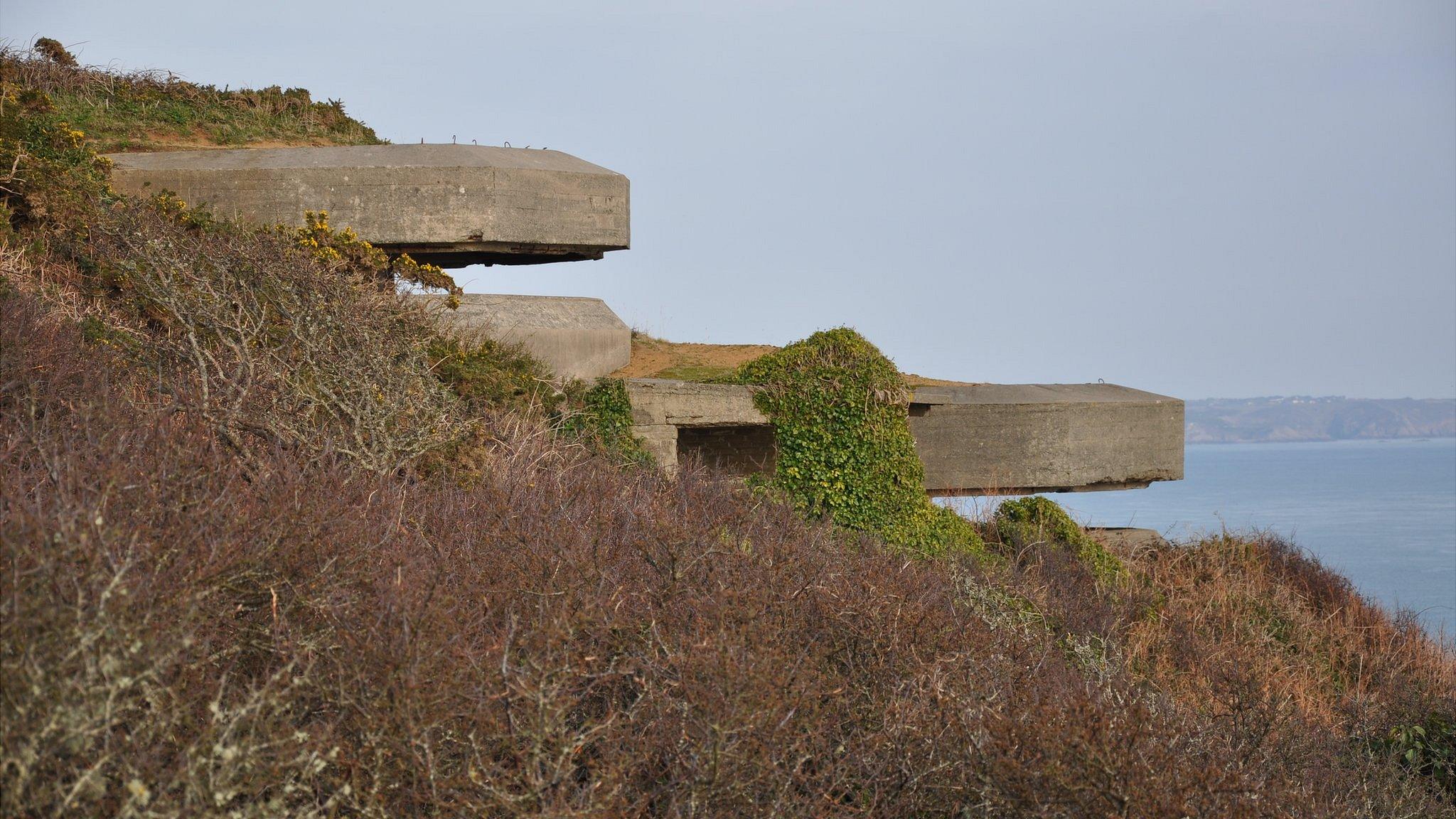Israeli honour for woman who hid Jewish friend from Nazis
- Published
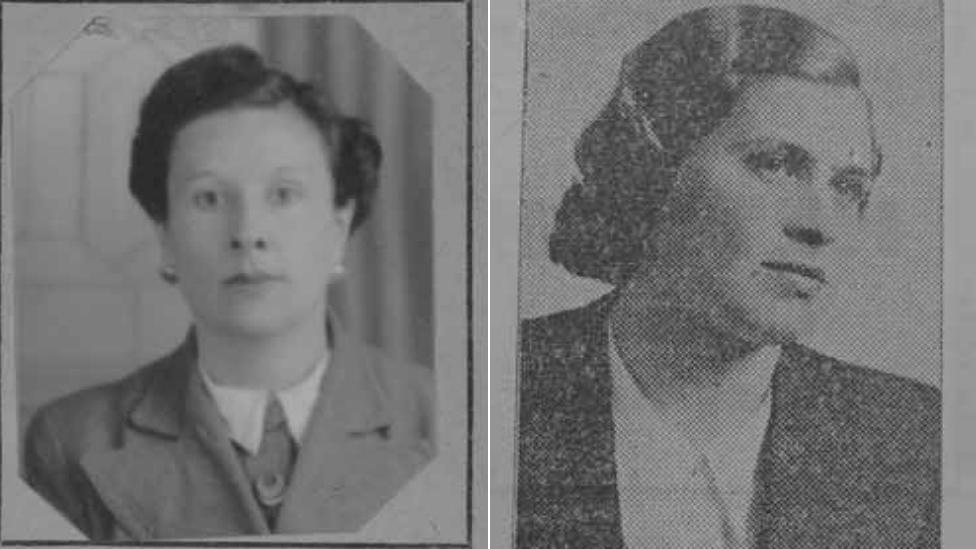
Dorothea Weber (left) hid her Jewish friend Hedwig Bercu (right) after her attempt to fake her suicide was not believed by the German authorities
A woman who risked her life by hiding a Jewish friend from the Nazis during World War Two has been honoured by the state of Israel.
Dorothea Weber, from Jersey, hid Hedwig Bercu who was being hunted by the Germans in the Nazi-controlled island.
The pair survived for 18 months on her rations and by fishing at night.
She has been recognised as one of the Righteous Among the Nations by the Yad Vashem, Israel's official memorial to the victims of the Holocaust.
Before the German occupation, which started on 30 June 1940, fewer than 100 Jews lived in the Channel Islands and most left before it began.
In 1942 three Jewish women from Guernsey were deported to France and were later interned, with all three dying in Auschwitz's gas chambers.

Dorothea Weber - nee Le Brocq - was married to an Austrian baker who was forced to serve in the German Army
Hedwig Bercu was one of only a handful of registered Jews in Jersey and went into hiding after being reported for smuggling petrol coupons.
She faked her suicide at St Aubin's Bay leaving a note and a pile of clothes on the beach, however, the German authorities were not convinced and continued to search for her.
Cambridge University academic Gilly Carr has campaigned for Dorothea Weber's bravery to be recognised and said she was "thrilled" and the news was "great for Jersey".
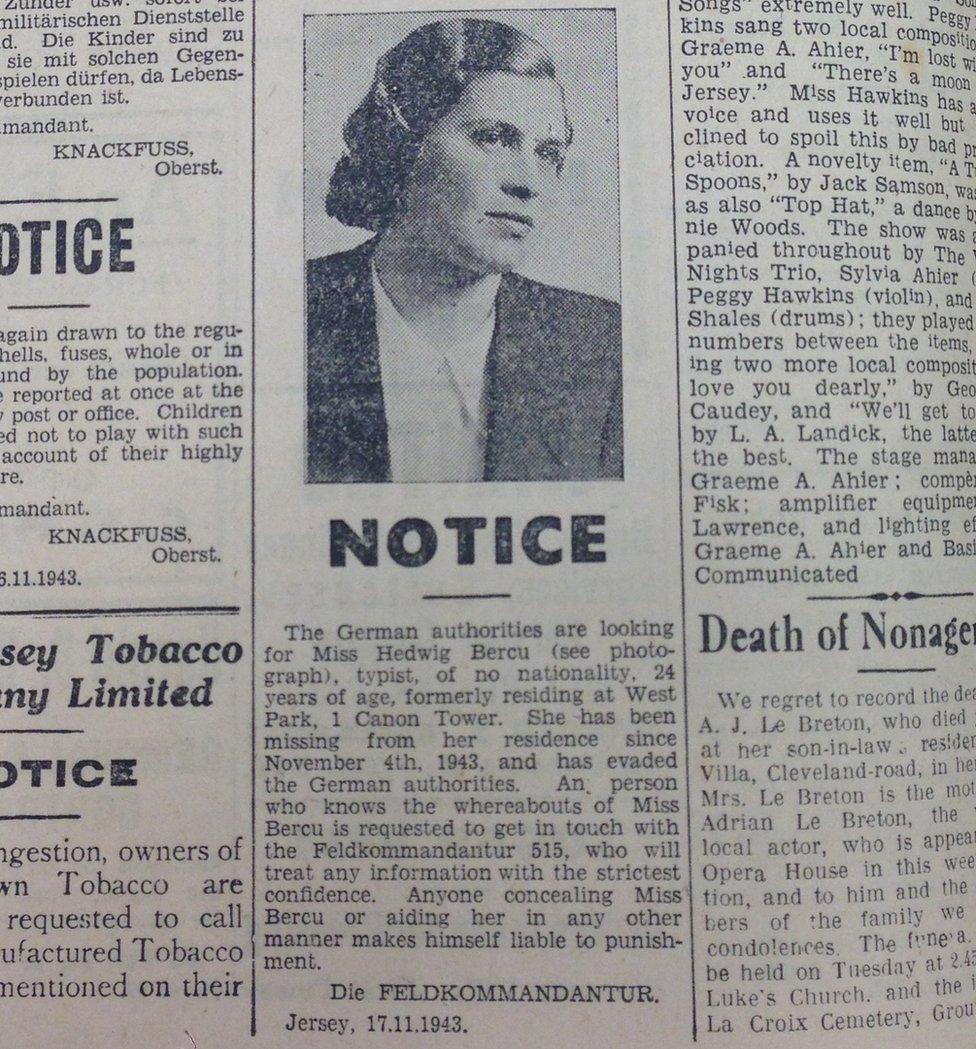
But the German authorities did not believe she had killed herself

Righteous Among Nations
Awarded by the Yad Vashem - the Jewish living memorial to the Holocaust - on behalf of the state of Israel
Given to non-Jewish people who risked their lives to save Jews during the Holocaust, perhaps the most famous of whom is Oskar Schindler
The main reasons for receiving the honour include hiding Jews, rescuing children and helping Jews to escape
The names of the "Righteous Among the Nations" are added to the Garden of the Righteous at Yad Vashem in Jerusalem
Applications for the honour must include available data such as survivor testimonies which are evaluated by a board of experts
More than 25,000 people have received the award since 1963, with 21 people honoured in Great Britain by the start of 2016

Ms Weber is the second Channel Islander to receive the honour - Albert Bedane was awarded it in 2000, external for sheltering Dutch Jewish woman Mary Richardson.
Although his house at 45 Roseville Street no longer exists, a plaque was unveiled on the site to celebrate his remarkable story.
Jon Carter, director of Jersey Heritage, said he hoped they could do something similar to mark Dorothea's actions.
He praised the work of Dr Carr and other academics as making a "significant change" in the occupation story.
Mr Carter said they had "done a great deal to shift the focus of the occupation narrative onto the victims of nazism" rather than the military occupation.
He said it was great for "a lot of untold stories like this one" to be brought into the public eye.

Find out more about World War Two from BBC iWonder:
- Published31 March 2016
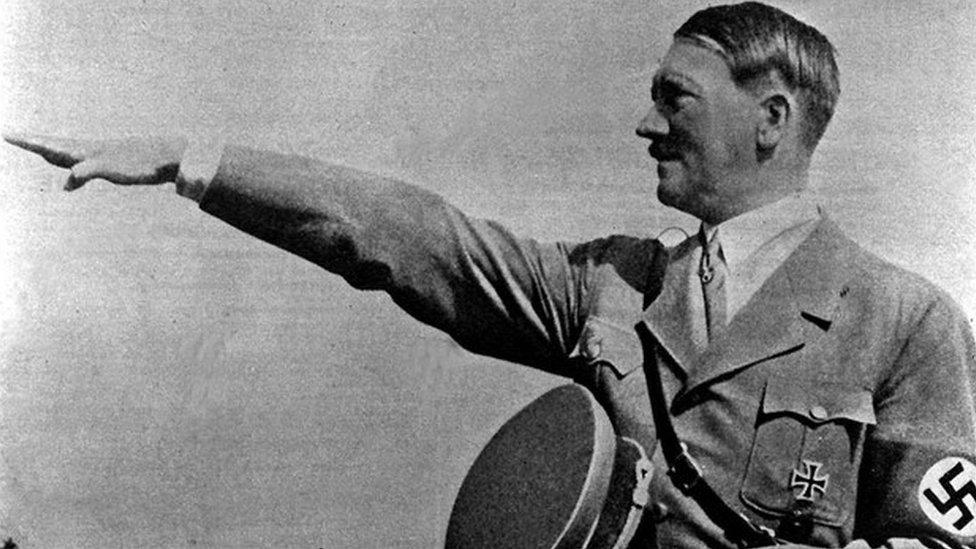
- Published31 January 2016

- Published1 November 2015
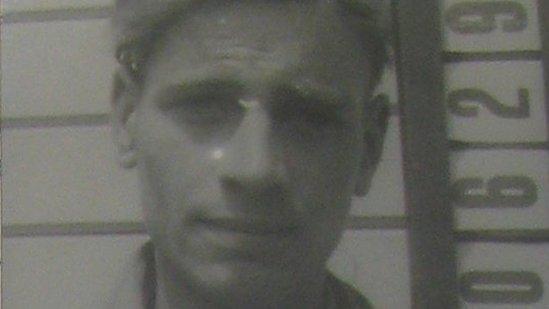
- Published9 May 2015
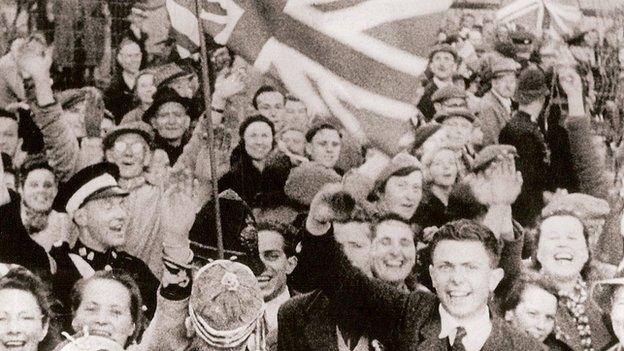
- Published8 May 2015
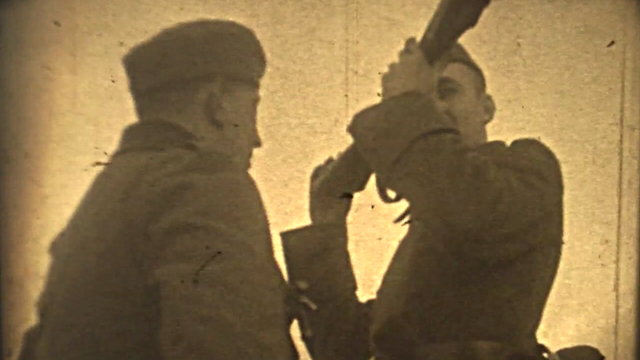
- Published8 May 2015
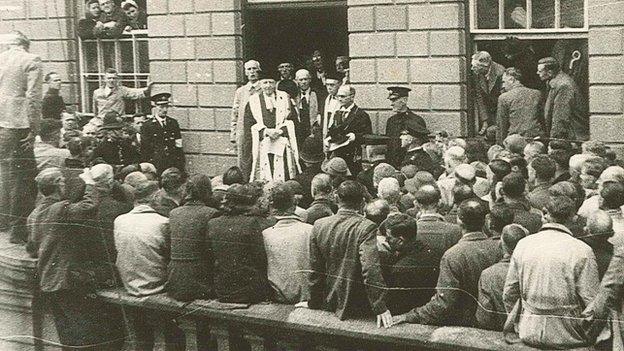
- Published4 May 2015
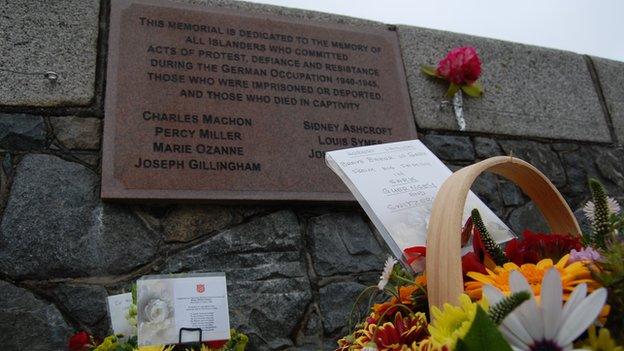
- Published15 January 2015
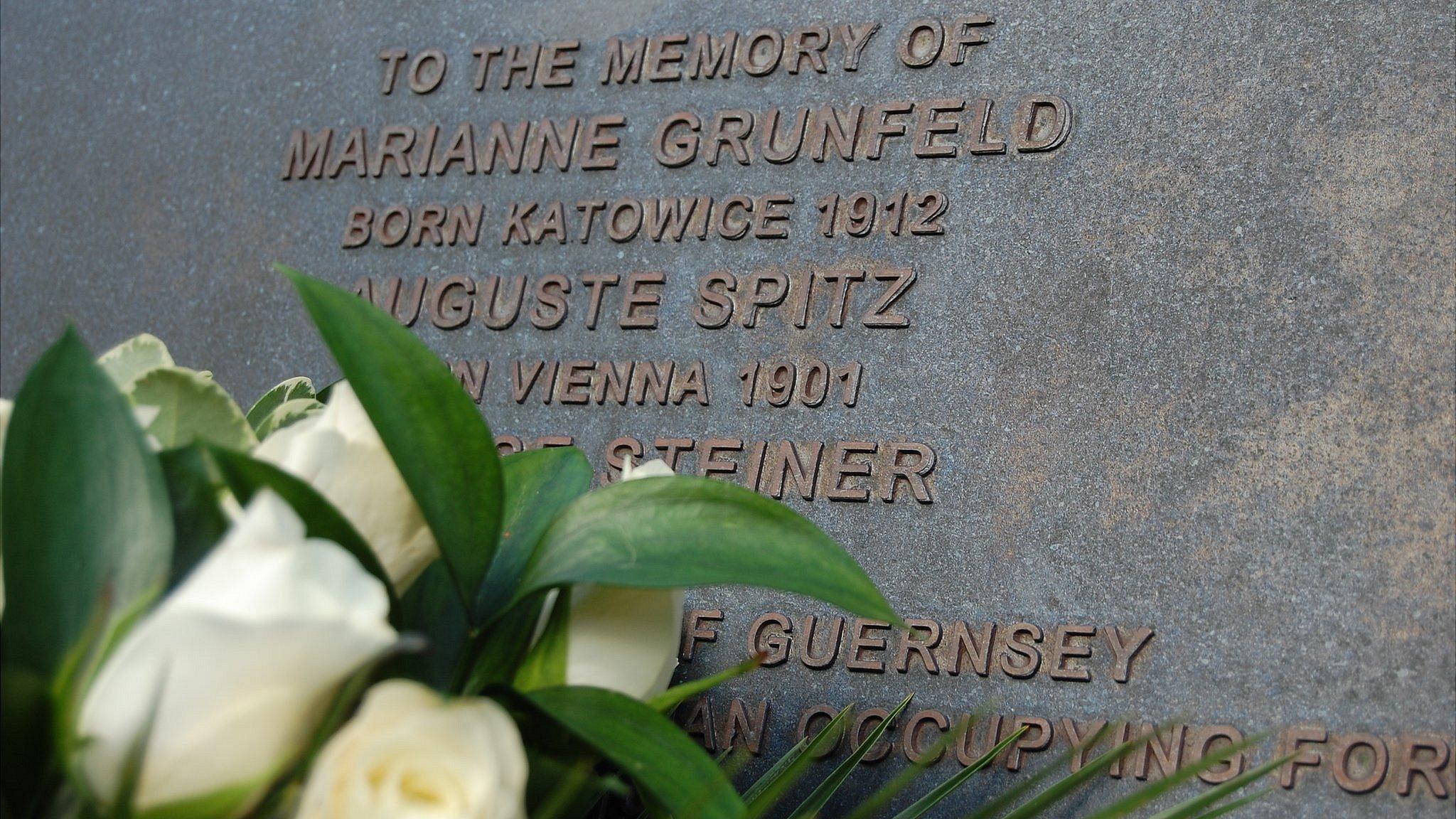
- Published26 November 2014
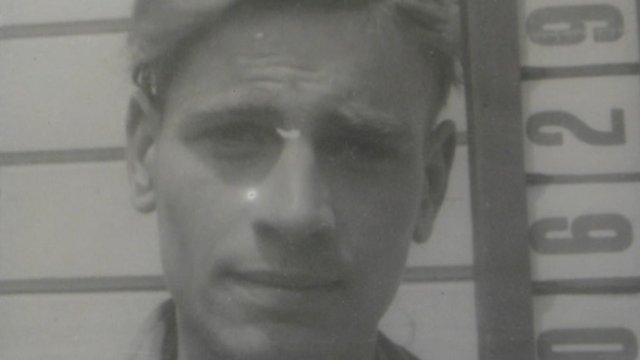
- Published3 October 2014
